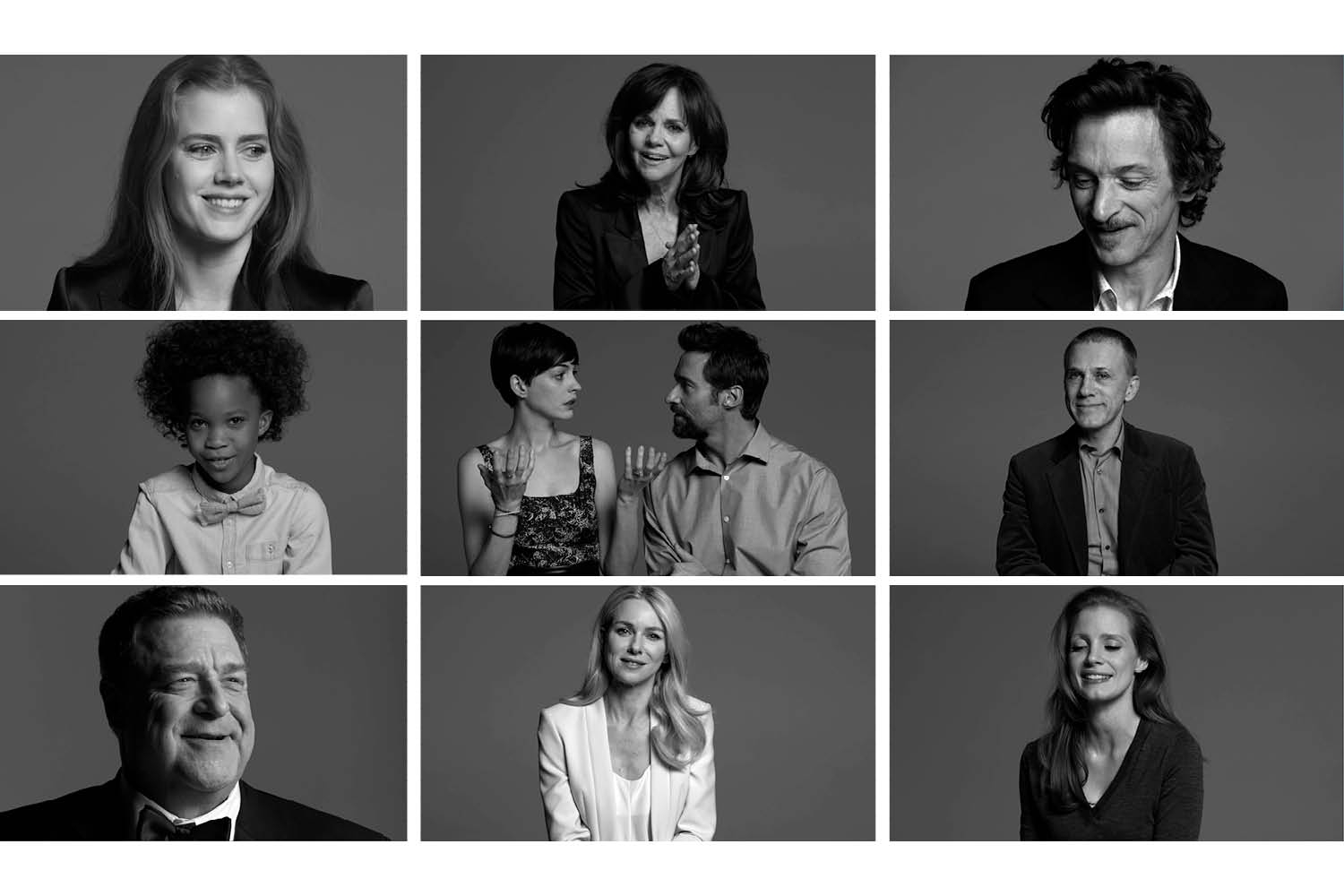
The Performers Speak
Oscar voters swoon for history. Often audiences do too. With a few exceptions, the most acclaimed, most talked about and most controversial films of 2012 were those that restaged pivotal moments from the world timeline — and in some cases rewrote them. Even Les Misérables, a musical of Christian martyrdom, is rooted in the anti-monarchist 1832 Paris uprising, and stars Anne Hathaway and Hugh Jackman did intense period research for their roles. “Victor Hugo’s novel is the greatest handbook any actor has ever had for a job,” Jackman says, “but Annie brought research to it that went even further than Hugo — about what it meant to be a woman in that time period, what it meant to be a prisoner.”
In the past eight years, nine of the Oscars for Best Actor and Actress have been for portrayals of famous figures in 20th century political or cultural history. The accuracy of each actor’s onscreen look and mannerisms could be measured against an original: Truman Capote’s wizened-child voice, emanating from Philip Seymour Hoffman; Margaret Thatcher’s hawklike posture and predatory overbite, conjured by Meryl Streep.
Hathaway, by contrast, plays a woman whose name would never appear in a history book. In that sense, she is not unlike her fellow nominees from a slate of films that approach history through figures far less recognizable to us than Thatcher and Capote. The CIA operatives played by Ben Affleck, Alan Arkin and John Goodman in Affleck’s Argo were strictly undercover heroes — their wily patriotism wasn’t even declassified until 1997. The CIA tracker portrayed by Jessica Chastain in Zero Dark Thirty is reportedly still in the field and cannot be identified. Maria Belon, whom Naomi Watts plays in The Impossible, is a survivor of the 2004 tsunami but not a global face of that catastrophe. Everyone knows Abraham Lincoln, but Lincoln stars Daniel Day-Lewis and Sally Field (as the 16th President’s wife) had no film footage or audio recordings to pull from, and neither does their audience.
See more portraits of TIME’s Great Performances portfolio by Paola Kudacki
So Field found a different way in. “It was important to create the messiness of a long-term marriage between two complicated and emotionally challenged people,” she says. The Master also uses a closeup portrait of a marriage to help achieve a small-scale intimacy with a larger-than-life figure — in this case, a cult leader reminiscent of Scientology founder L. Ron Hubbard, played by Hoffman, with Amy Adams as his formidable wife. “It’s a film about human connection, emotional connection,” Hoffman says. The makers of The Master have stressed that Hubbard is only a reference point for the film and not its subject; that may seem like a dodge, but it’s also a declaration of independence — a call to let a movie be a movie, and to let actors act, not mimic.
That spirit burned brightest in the films that took the most liberties with their reference points. Loosely inspired by the events of Hurricane Katrina, Beasts of the Southern Wild originated a Gulf Coast strain of magic realism, with Quvenzhané Wallis as perseverance personified. (“Dealing with the mosquitoes and the mud was the hardest part,” says Wallis of the Louisiana shoot, “but you just had to go through it.”) And in Django Unchained, set in the twilight years of slavery in the American South, Jamie Foxx and Christoph Waltz are an unlikely pair of bounty hunters: one a vengeful ex-slave, the other a progressive European. Neither of these movies is reverent toward history; Django in particular roughs up the historical record or disregards it entirely. The actors behind the great performances noted in these pages were free to create original characters rather than impersonations. In so doing, they also enabled their movies to take old business and make it new.
Paola Kudacki is a photographer based in New York. She previously photographed Kathryn Bigelow for the cover of TIME.
Jessica Winter is the editor of TIME’s Culture section.
More Must-Reads from TIME
- Donald Trump Is TIME's 2024 Person of the Year
- Why We Chose Trump as Person of the Year
- Is Intermittent Fasting Good or Bad for You?
- The 100 Must-Read Books of 2024
- The 20 Best Christmas TV Episodes
- Column: If Optimism Feels Ridiculous Now, Try Hope
- The Future of Climate Action Is Trade Policy
- Merle Bombardieri Is Helping People Make the Baby Decision
Contact us at letters@time.com